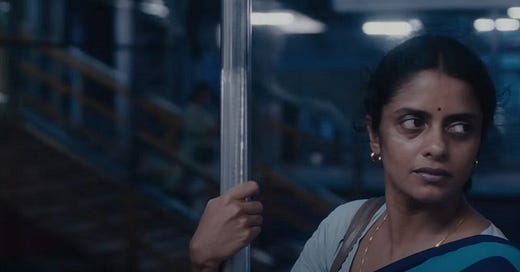Film Review - All We Imagine as Light
Payal Kapadia's slice-of-life drama about the lives of three working class women in Mumbai exudes warmth and humanity
The lives of working class women in modern Mumbai provide the focus of this slice-of-life grounded drama from Payal Kapadia. All We Imagine as Light was a big success at Cannes (it won the Grand Prix), though it will not be competing in the Best International Film category at this …
Keep reading with a 7-day free trial
Subscribe to The Dillon Empire: Simon Dillon on Substack to keep reading this post and get 7 days of free access to the full post archives.





